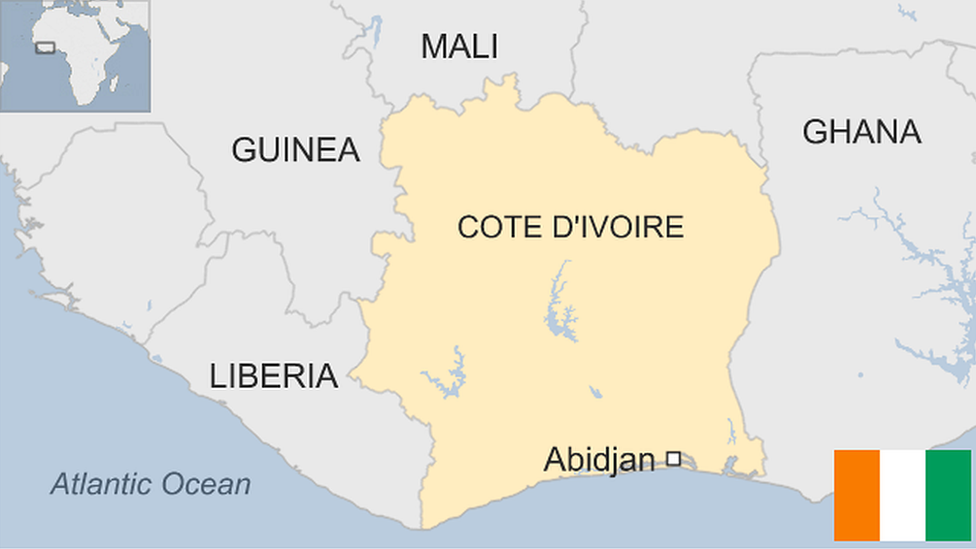Ivory Coast elections: Seven things you should know
- Published
Can spreading Ivory Coast's culture and traditions prevent any future return to violence?
Ivory Coast is holding its first elections this weekend since a civil war sparked by polls in 2010.
Ahead of the vote, here are seven things you need to know about the West African country - once hailed as a model of stability.

Chocolate and nuts
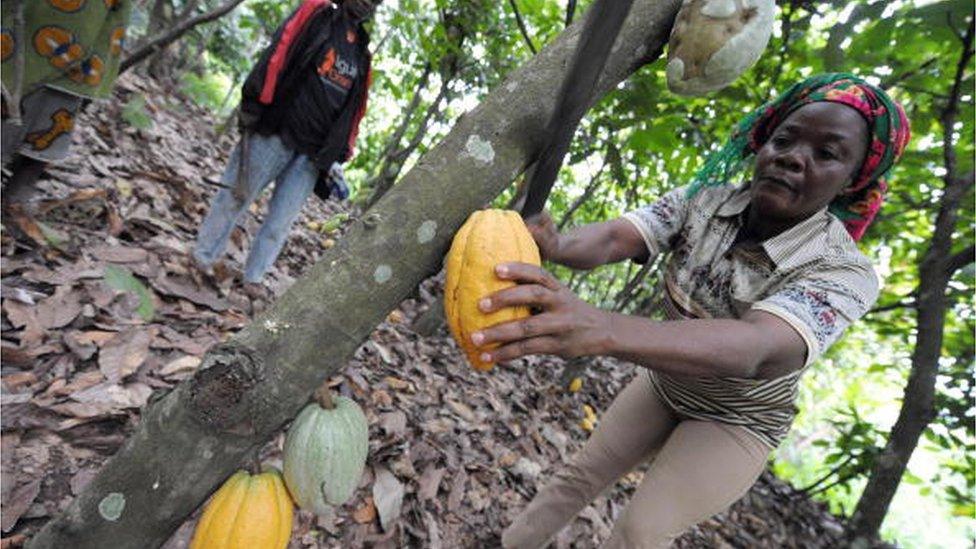
Cocoa is the key ingredient used to produce chocolate
The economy has boomed in recent years and Ivory Coast is the world's biggest exporter of cocoa, producing around 40% of the planet's beans used to manufacture chocolate. But this year, it also overtook India as the leading exporter of cashew nuts.
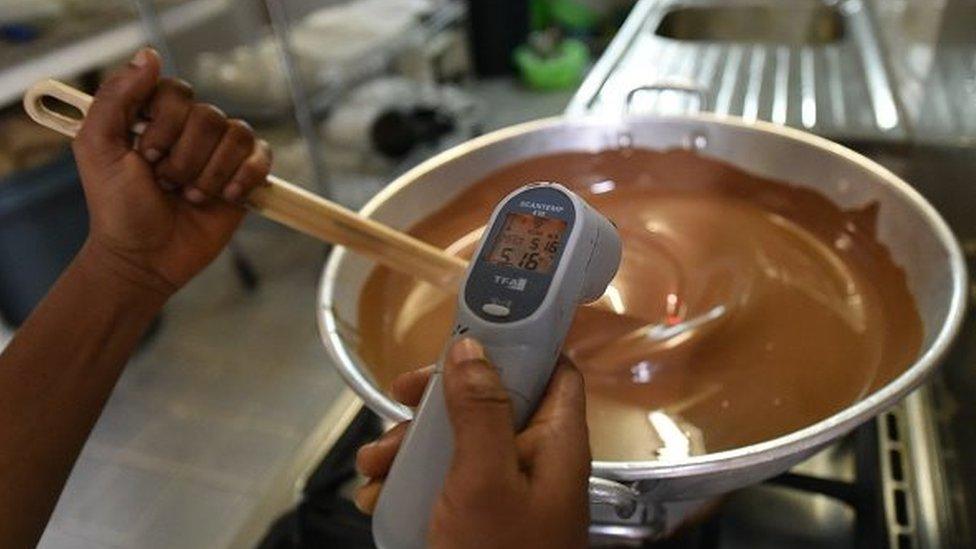
Ivory Coast opened its first large-scale chocolate factory this year, it exports most of its cocoa
Cocoa transformed Ivory Coast into the "Paris of Africa" as it was called in the 1970s and 1980s, until a slump in cocoa prices dampened the "Ivorian miracle".
President Alassane Ouattara, who took office in May 2011, wanted to diversify the economy. Agriculture is still the backbone, but it includes bananas, rubber and palm oil too.

Victors' justice
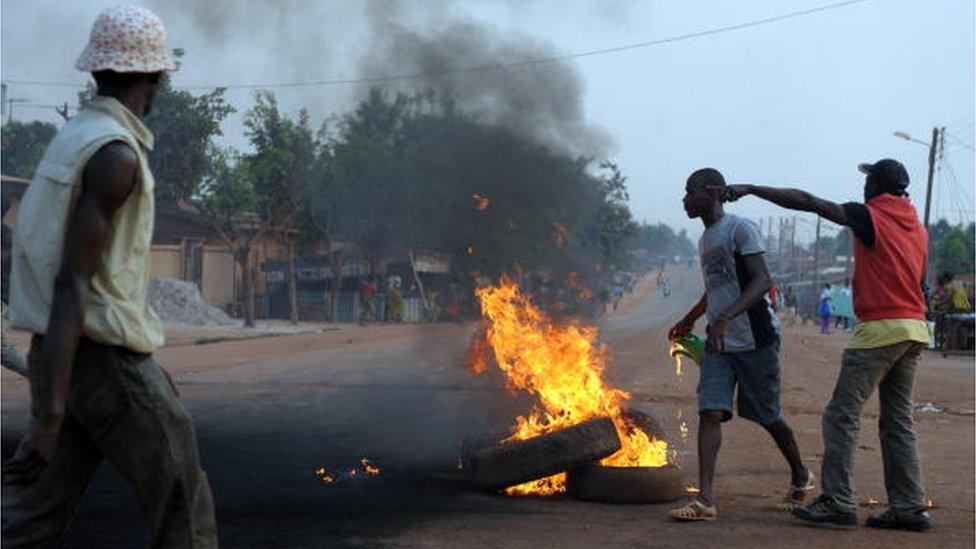
The country wants to avoid the repeat of the 2010 election violence
The last elections in 2010 sparked five months of violence when former President Laurent Gbagbo refused to step down.
More than 3,000 people were killed in some of the most brutal violence the country has ever seen.
President Ouattara has been accused of one-sided justice after hundreds of Mr Gbagbo's supporters were imprisoned but very few from his side were even arrested - despite the UN and international human rights organisations saying both sides committed atrocities.

'Chicken nests' abolished
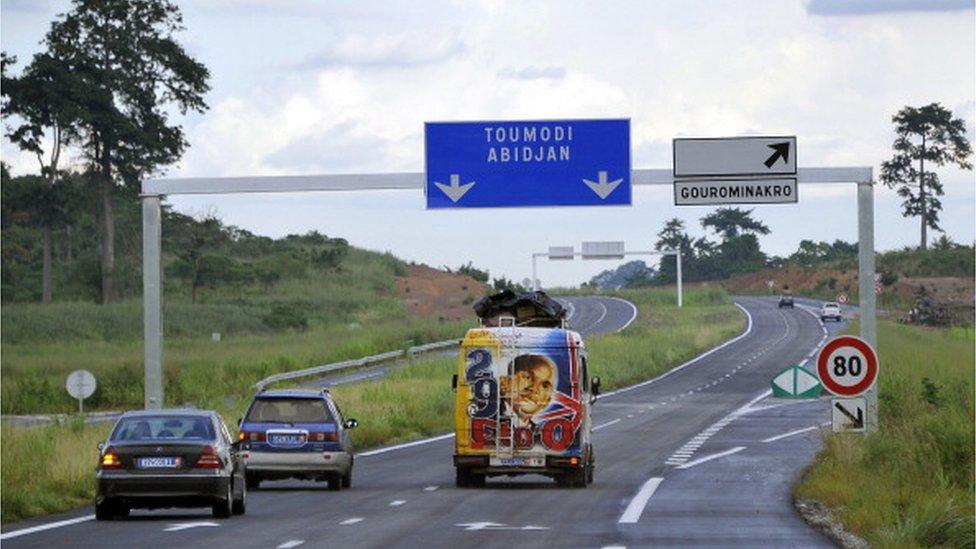
Ivory Coast has witnessed major infrastructure development in recent years
No more "nids de poules" on the country's major roads. The French call potholes "chicken nests".
The government says it has built 1,000km (620 miles) of new roads since it has been in power and rehabilitated another 20,000km throughout Ivory Coast.
It is promising to build 1,200km more if re-elected.

Candidates - aged 44 to 73
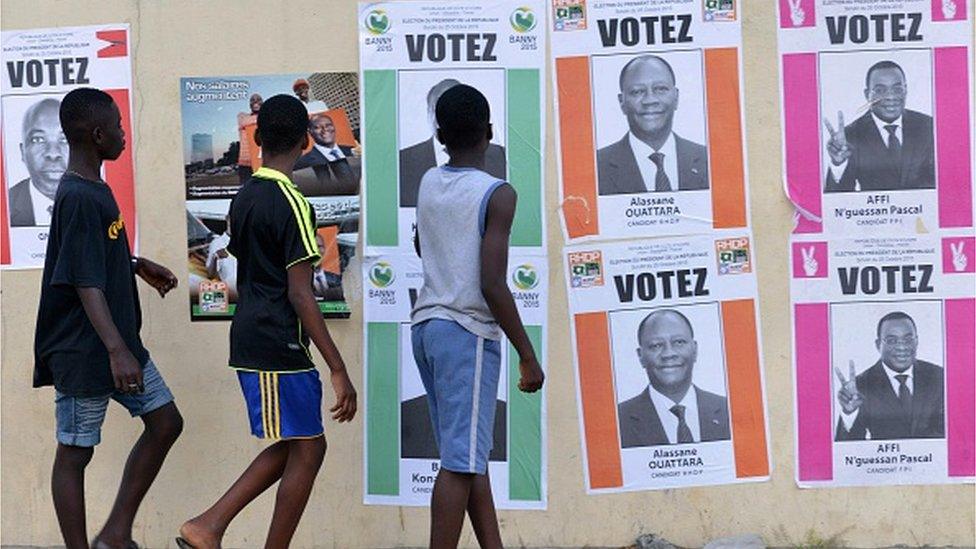
Campaigns have intensified ahead of Sunday's vote
There were 10, now there are seven. A former finance minister, Mamadou Koulibaly, and former foreign minister, Amara Essy, dropped out saying the elections would not be free and fair.
The latest, former prime minister Charles Konan Banny, pulled out on Friday, with the same complaint.
That leaves another former prime minister - Pascal Affi N'Guessan, leader of Laurent Gbagbo's former party - as Mr Ouattara's main rival.
Mr Ouattara is the eldest at 73, while independent candidate Claire Jacqueline Kouangoua, one of only two women running, is the youngest at 44.

Slogans
Mr Affi N'Guessan, the main opposition candidate, is using the same slogan that France's Francois Hollande did in his last campaign , "Le changement maintenant", meaning "Change now", which is ironic considering how unpopular Mr Hollande is now in France.
Mr Ouattara, known to his supporters as "Ado" because of his initials, has chosen to use "Avec Ado, reussir ensemble", meaning "With Ado, succeed together".
This is also interesting because one of the main criticisms of President Ouattara has been his lack of focus on reconciliation since the crisis.
The campaign theme of "togetherness" is clearly supposed to address this.

Music divides
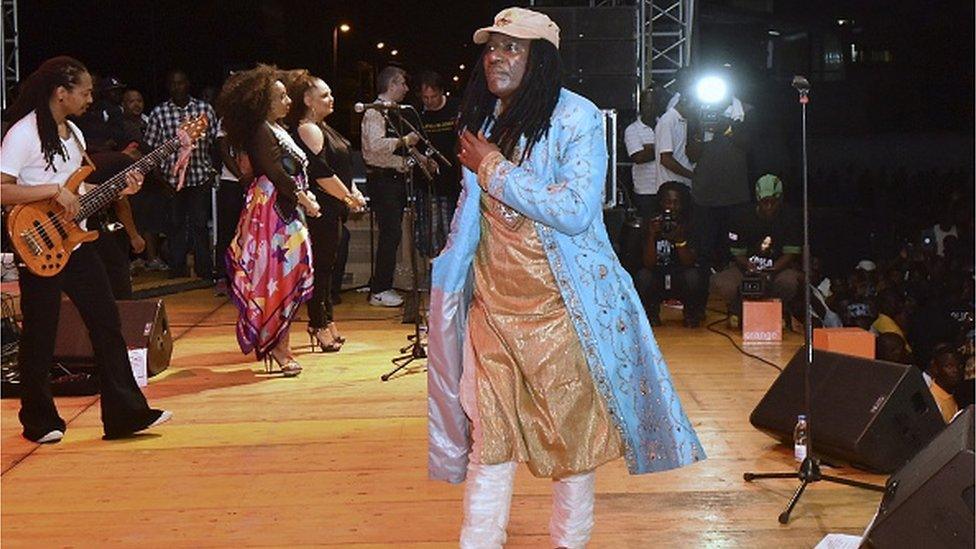
Ivory Coast has some of the greatest reggae artists in Africa
Music has always played a role in Ivory Coast politics. Alpha Blondy, the country's undisputed king of reggae, began singing about war and fighting in the country as early as 1998.
In 2010, he openly backed former President Laurent Gbagbo, giving a free concert in Abidjan.
His main reggae rival, Tiken Jah Fakoly who sang anti-Gbagbo songs, had to go into exile and has decided to stay in Mali.
And this election is no different when it comes to music and the main candidates have their songs.
Mr N'Guessan's talks about "the fighters" being "tired" and how they were all the "victims of the political violence" but Affi N'Guessan is their man.
Mr Ouattara's focuses instead on what the government has done for the economy, singing: "With Ado, Ivory Coast wins."

Football unites
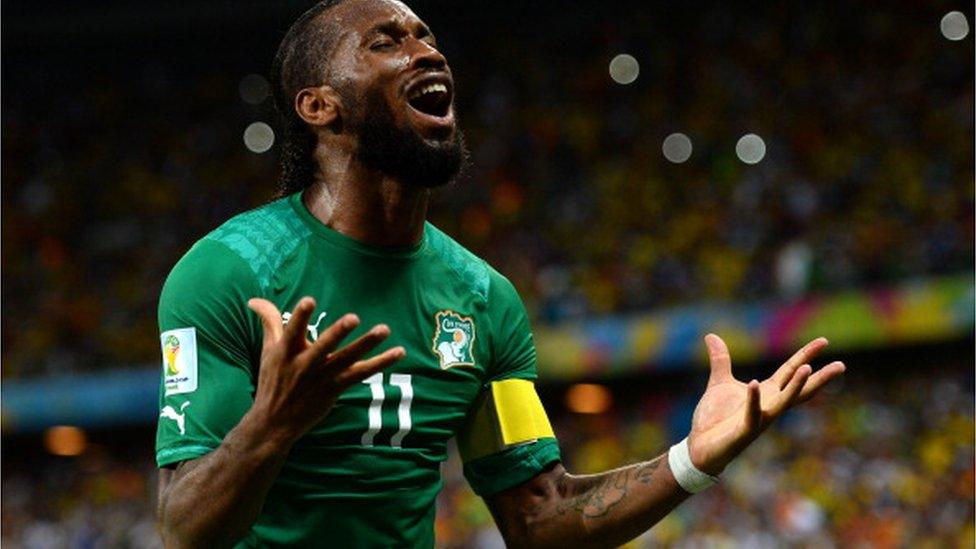
Drogba is considered the most high profile Ivorian footballer in history
The Elephants are the pride of Ivory Coast, and while football is a game and has nothing to do with politics, we all know that's not true.
Didier Drogba has been attributed with single-handedly putting an end to violence that was raging in the country in 2005 when he fell to his knees on national television and asked fighters to lay down their arms.
A week later they did.
This year Drogba, along with his former teammates and other international Ivorian sport stars, like sprinter Murielle Ahoure, have a new message for voters. "Election c pas gnaga". It means "elections are not about violence", in Nouchi, Ivorian street speak.
- Published24 October 2015
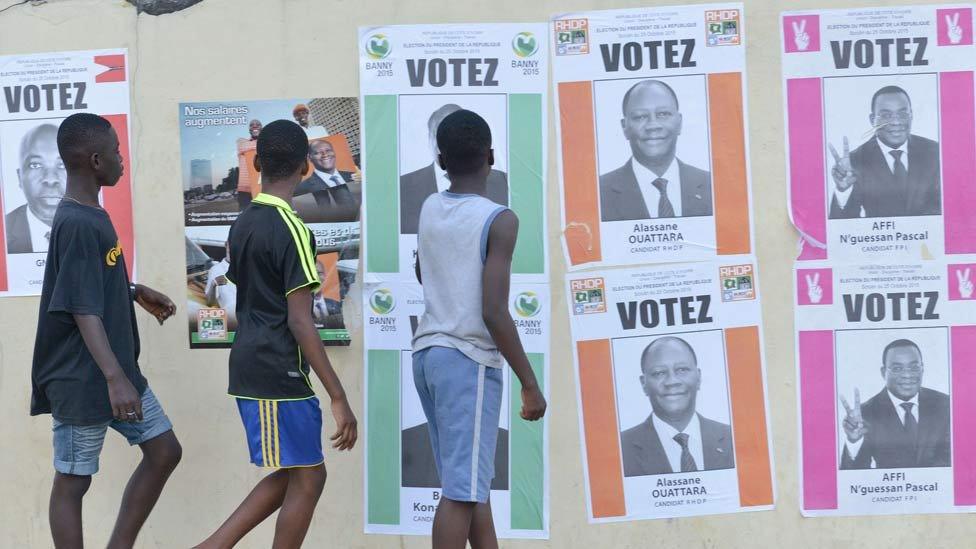
- Published24 July 2023
